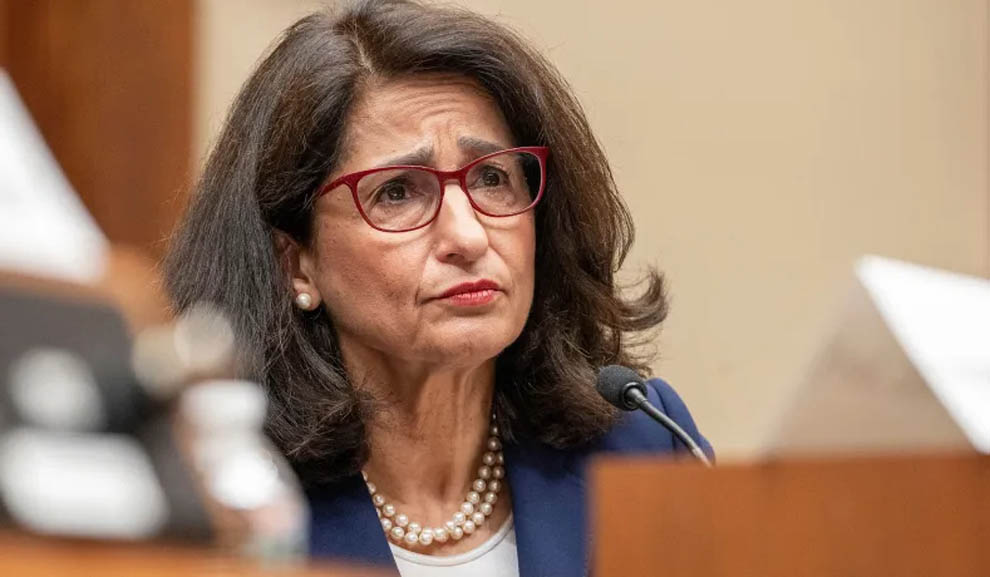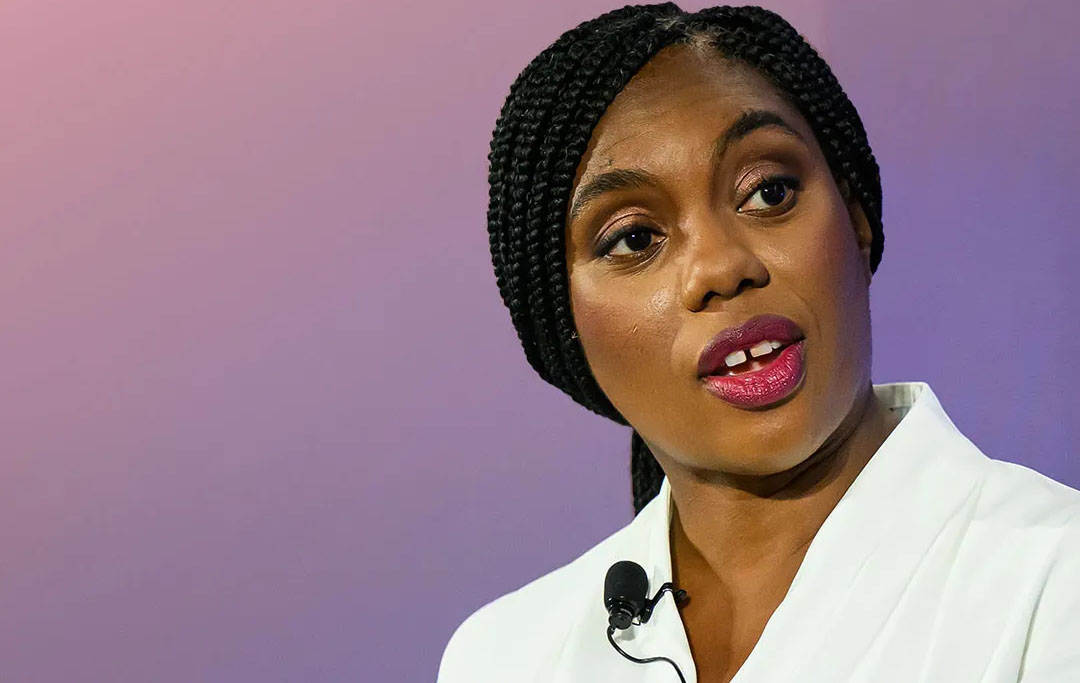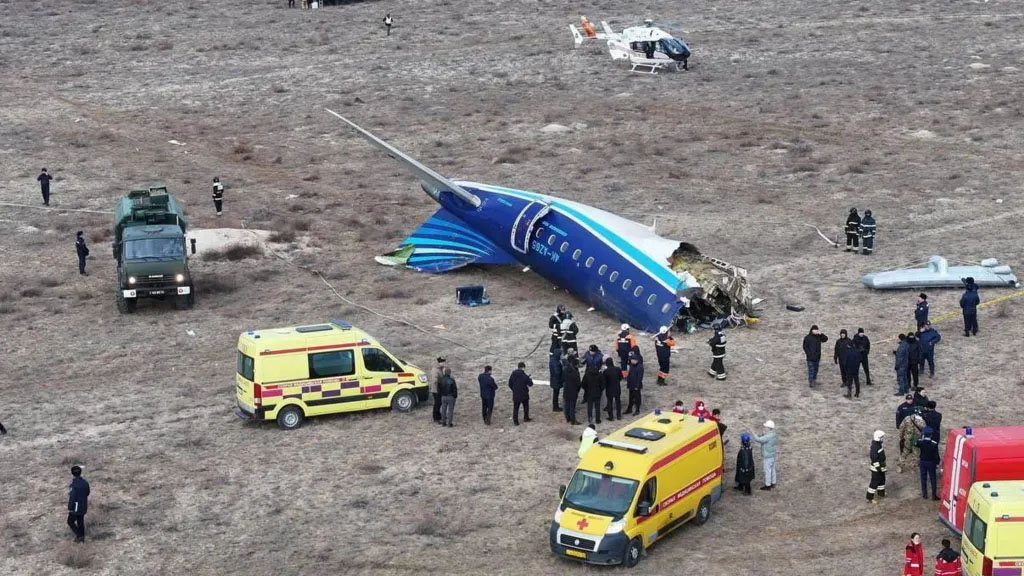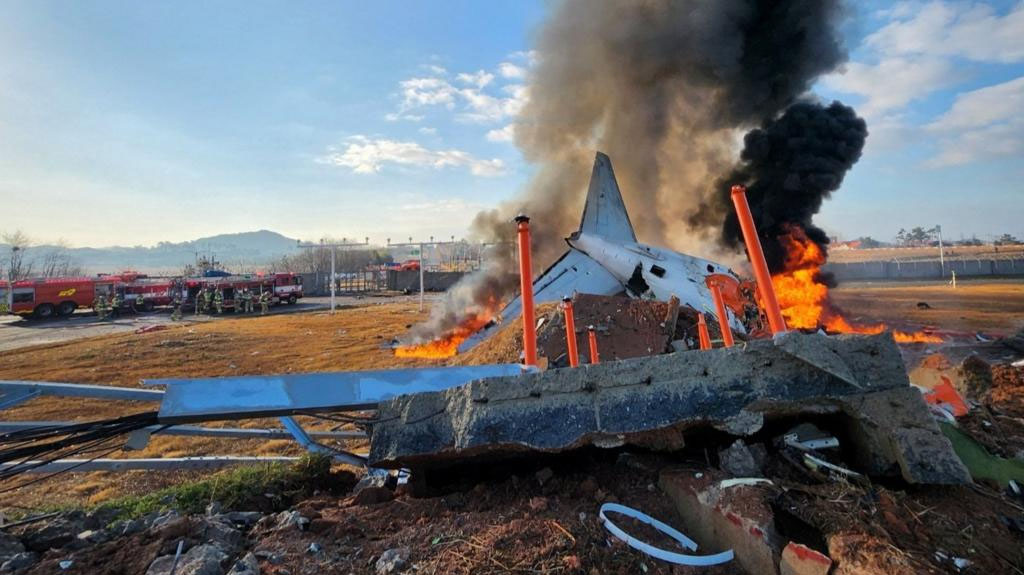International
Columbia University president resigns after Gaza protests turmoil

Columbia University president resigns after Gaza protests turmoil
Columbia University President Minouche Shafik has resigned from her position amid a free speech debate over campus protests of the war in Gaza.
Ms Shafik’s resignation comes only a year after she took the position at the private Ivy League university in New York City, and just a few weeks before the autumn semester is due to begin.
Ms Shafik is now the third president of an Ivy League university to resign over her handling of Gaza war protests.
In April, Ms Shafik authorised New York Police Department officers to swarm the campus, a controversial decision that led to the arrests of about 100 students who were occupying a university building.
The episode marked the first time that mass arrests had been made on Columbia’s campus since Vietnam War protests more than five decades ago.
The move inflamed other protests at dozens of colleges across the United States and Canada.
In an email to students and faculty on Wednesday, Ms Shafik wrote that she has overseen a “period of turmoil where it has been difficult to overcome divergent views across our community”.
“This period has taken a considerable toll on my family, as it has for others in our community.”
Katrina Armstrong, chief executive officer of the Columbia University Irving Medical Center, will serve as the interim president.
“Over the summer, I have been able to reflect and have decided that my moving on at this point would best enable Columbia to traverse the challenges ahead,” Ms Shafik wrote in her letter.
“I have tried to navigate a path that upholds academic principles and treats everyone with fairness and compassion,” she continued.
“It has been distressing – for the community, for me as president and on a personal level – to find myself, colleagues, and students the subject of threats and abuse.”
READ ALSO:
- Constitution not Nigeria’s problem, Tanko Yakasai tackles the Patriots
- Why I attacked Tinubu – Bauchi gov
- Man kills 8-year-old son over sewing thread in Lagos
Students’ anger over how Israel is fighting its war against Hamas has raised fraught questions for university leaders, who are already struggling with combustive campus debates around what is happening in the Middle East.
US college campuses have been a flashpoint for Gaza war protests since Hamas attacked Israel on 7 October, and Israel’s subsequent incursion into the Gaza Strip.
The leaders of Harvard University, University of Pennsylvania (UPenn) and the Massachusetts Institute of Technology all testified before the House Committee on Education and the Workforce.
The presidents of Harvard and UPenn ultimately resigned amid backlash over their handling of campus protests and congressional testimony, including their refusal to say that calling for the deaths of Jews could violate university policy.
In April, Ms Shafik defended her institution’s efforts to tackle antisemitism to Congress, saying that there had been a rise in such hatred on campus and the college was working to protect students.
Ms Shafik is a highly-respected Egyptian-born economist who formerly worked for the World Bank, the International Monetary Fund and the Bank of England.
She also previously served as president of the London School of Economics.
Ms Shafik, who received a damehood in 2015, was previously considered to be on the shortlist for the Bank of England governor, the BBC reported in 2019.
Her letter adds that she has been asked by the UK Foreign Secretary to lead a “review of the government’s approach to international development and how to improve capability”.
READ ALSO:
- Protesters made away Ganduje’s corruption allegation documents from court–Kano Gov
- Immigration arrests woman who destroyed husband’s passport, taken to Abuja (VIDEO)
- Tribunal sacks PDP candidate, declares LP winner of House of Reps election
The decision, she wrote, “enables me to return to the House of Lords and to reengage with the important legislative agenda put forth by the new UK government”.
Her resignation comes after three Columbia University deans also resigned last week, after text messages showed the group used “antisemitic tropes”, according to a statement by Ms Shafik, while discussing Jewish students.
The text exchanges were originally published by the Republican-led House Committee on Education and the Workforce in early July.
Congresswoman Virginia Foxx, the chairwoman of the congressional committee, praised the decision by the three administrators to resign.
“About time. Actions have consequences,” she said in a statement last Thursday, adding that the decision should have been made “months ago”.
“Instead, the University continues to send mixed signals,” she continued, adding that the administration is allowing a dean who has not resigned to “slide under the radar with no real consequences”.
Universities around the US are preparing for the academic year to begin in the next several weeks, as the conflict in Gaza continues.
On Tuesday, a judge in California ruled that UCLA – which saw violent protests break out on campus in May – must prevent protesters from blocking Jewish students from campus facilities.
Judge Mark Scarsi ruled that protesters had “established checkpoints and required passers-by to wear a specific wristband to cross them”, and blocking “people who supported the existence of the state of Israel”.
“Jewish students were excluded from portions of the UCLA campus because they refused to denounce their faith,” Judge Scarsi wrote in the order. “This fact is so unimaginable and so abhorrent to our constitutional guarantee of religious freedom that it bears repeating.”
The university has blamed outside agitators for the checkpoints and said it objected to the ruling.
Hamas-led gunmen killed about 1,200 people in an attack on Israel on 7 October, taking 251 others back to Gaza as hostages.
That attack triggered a massive Israeli military offensive against Gaza and the current war.
At least 39,897 Palestinians have been killed in the Israeli campaign, according to Gaza’s Hamas-run health ministry.
Columbia University president resigns after Gaza protests turmoil
BBC
International
Kemi Badenoch political career may be in danger – Top diplomat

Kemi Badenoch political career may be in danger – Top diplomat
Comments by the Leader of the Opposition in the United Kingdom (UK), Olukemi Olufunto Adegoke Badenoch, have sparked controversy in Nigeria with many outraged over the Leader of the Conservative Party statements which many interpreted as unpatriotic while some rose in her defence.
The British-Nigerian politician, who previously served in the UK Cabinet under Liz Truss and Rishi Sunak from 2022 to 2024, had made remarks that many Nigerians interpreted as offensive.
She replaced the party’s leader and immediate past UK Prime Minister, Rishi Sunak, after winning 57 per cent of party members’ votes to defeat former immigration minister Robert Jenrick.
The election, which saw her emerge as the first Black leader of a UK-wide political party, followed Mr Sunak’s resignation from the position after the party failed in the July general election, which produced Keir Starmer of the Labour Party as the new Prime Minister.
READ ALSO:
- Oluwo backs push for Sharia law in South-West
- Niger: DSS officers kill three notorious bandits, recover arms, motorbikes
- Shettima admits killing of civilians in Sokoto airstrikes, tenders apology
Her position places her as a potential Prime Minister of the UK.
Speaking with British media recently, Badenoch, who had earlier described her upbringing in Nigeria as being overshadowed by fear and insecurity in a country plagued by corruption, detached herself from Northern Nigeria, which she referred to as a haven for Islamism and Boko Haram.
“I find it interesting that everybody defines me as being Nigerian. I identify less with the country than with the specific ethnicity [Yoruba],” she said.
“I have nothing in common with the people from the north of the country, the Boko Haram where Islamism is.
“Being Yoruba is my true identity, and I refuse to be lumped with northern people of Nigeria, who ‘were our ethnic enemies, all in the name of being called a Nigerian.”
Kemi Badenoch political career may be in danger – Top diplomat
International
Putin apologises over Azerbaijan plane crash reportedly shot down

Putin apologises over Azerbaijan plane crash reportedly shot down
Russia’s President Vladimir Putin has apologised to the president of neighbouring Azerbaijan over the downing of a commercial airliner in Russian airspace, in which 38 people were killed – but stopped short of saying Russia was responsible.
In his first comments on the Christmas Day crash, Putin said the “tragic incident” had occurred when Russian air defence systems were repelling Ukrainian drones.
Ukraine’s President Volodymr Zelensky said Russia must “stop spreading disinformation” about the strike.
The plane is believed to have come under fire from Russian air defence as it tried to land in the Russian region of Chechnya – forcing it to divert across the Caspian Sea.
The Azerbaijan Airlines jet then crash-landed near Aktau in Kazakhstan, killing 38 of the 67 on board.
Most of the passengers on the flight were from Azerbaijan, with others from Russia, Kazakhstan and Kyrgyzstan.
It is believed most of those who survived were seated in the plane’s rear.
READ ALSO:
- 256 terrorists, two logistics suppliers arrested in one week – DHQ
- BREAKING: Plane skids off runway in South Korea, killing at least 120
- Suspected IPOB members kill two soldiers in Imo
Flight J2-8243 had been en route from the Azerbaijan capital of Baku to the Chechen capital of Grozny on 25 December when it came under fire and was forced to divert.
The Kremlin released a statement on Saturday noting Putin had spoken to Azerbaijan’s president Ilham Aliyev by phone.
“(President) Vladimir Putin apologised that the tragic incident occurred in Russian airspace and once again expressed his deep and sincere condolences to the families of the victims and wished a speedy recovery to the injured,” it said.
In the rare publicised apology, Putin also acknowledged the plane had repeatedly tried to land at Grozny airport in Chechnya.
At the time, the cities of Grozny, Mozdok and Vladikavkaz were “being attacked by Ukrainian unmanned aerial vehicles, and Russian air defence systems repelled these attacks”, he said.
The Kremlin read-out made no direct admission that the plane had been struck by Russian missiles.
In a statement released a shortly after the Kremlin’s, Ukrainian President Zelensky said the damage to the aircraft’s fuselage was “very reminiscent of an air defence missile strike”, adding that Russia “must provide clear explanations”.
“The key priority now is a thorough investigation that will answer all questions about what really happened.”
Prior to Saturday, the Kremlin had refused to say whether it was involved in the crash with authorities saying they were awaiting investigation results.
But Russian aviation authorities had earlier in the week said the situation in the region was “very complicated” due to Ukrainian drone strikes.
Aviation experts and others in Azerbaijan believe the plane’s GPS systems were affected by electronic jamming and it was then damaged by shrapnel from Russian air defence missile blasts.
Survivors had previously reported hearing loud bangs before the plane crashed, suggesting it had been targeted.
Azerbaijan had not officially accused Russia this week, but the country’s transport minister said the plane was subject to “external interference” and was damaged inside and out as it tried to land.
US defence officials on Friday had also said they believed Russia was responsible for the downing.
Moscow noted that Russian investigators had launched a criminal investigation. Azerbaijan had already announced it would launch an investigation.
The Kremlin said that Azeri, Kazakh and Russian agencies were “working closely at the site of the disaster in Aktau region”.
Even before Putin’s message on Saturday was released, several airlines from Azerbaijan had already begun suspending flights to most Russian cities.
The suspension will remain in place until the investigation into the crash is complete, one airline said.
International
BREAKING: Plane skids off runway in South Korea, killing at least 120

BREAKING: Plane skids off runway in South Korea, killing at least 120
AP – A passenger plane burst into flames Sunday after it skid off a runway at a South Korean airport and slammed into a concrete fence when its front landing gear apparently failed to deploy, killing at least 120 people, officials said, in one of the country’s worst aviation disasters.
The National Fire Agency said rescuers raced to pull people from the Jeju Air passenger plane carrying 181 people at the airport in the town of Muan, about 290 kilometers (180 miles) south of Seoul. The Transport Ministry identified the plane as a 15-year-old Boeing 737-800 jet and said the crash happened at 9:03 a.m. local time.
At least 120 people — 57 women, 54 men and nine others whose genders weren’t immediately identifiable — died in the fire, the South Korea fire agency said. The death toll is expected to rise further as the rest of the people aboard the plane remain missing about six hours after the incident.
Emergency workers pulled out two people, both crew members, to safety, and local health officials said they remain conscious. The fire agency deployed 32 fire trucks and several helicopters to contain the fire, it said.
Footage of the crash aired by YTN television showed the Jeju Air plane skidding across the airstrip, apparently with its landing gear still closed, and colliding head-on with a concrete wall on the outskirts of the facility. Other local TV stations aired footage showing thick pillows of black smoke billowing from the plane engulfed with flames.
READ ALSO:
Lee Jeong-hyeon, chief of the Muan fire station, told a televised briefing that rescue workers are continuing to search for bodies scattered by the crash impact. The plane was completely destroyed, with only the tail assembly remaining recognizable among the wreckage, he said.
Workers were looking into various possibilities about what caused the crash, including whether the aircraft was struck by birds that caused mechanical problems, Lee said. Senior Transport Ministry official Joo Jong-wan separately told reporters that government investigators arrived at the site to investigate the cause of the crash and fire.
Emergency officials in Muan said the plane’s landing gear appeared to have malfunctioned. The Transport Ministry said the plane was returning from Bangkok and its passengers include two Thai nationals.
Thailand’s prime minister, Paetongtarn Shinawatra, expressed deep condolences to the families of those affected by the accident through a post on social platform X. Paetongtarn said she had ordered the Ministry of Foreign Affairs to provide assistance immediately.
Kerati Kijmanawat, the director of the Airports of Thailand, confirmed in a statement that Jeju Air flight 7C 2216 departed from Suvarnabhumi Airport with no reports of abnormal conditions in the airspace or on the runway.
Jeju Air in a statement expressed its “deep apology” over the crash and said it will do its “utmost to manage the aftermath of the accident.”
In a televised news conference, Kim E-bae, Jeju Air’s president, deeply bowed with other senior company officials as he apologized to bereaved families and said he feels “full responsibility” for the incident. Kim said the company hadn’t identified any mechanical problems in the aircraft following regular checkups and that he would wait for the results of government investigations into the cause of the incident.
Boeing said in a statement on X that it was in contact with Jeju Air and is ready to support the company in dealing with the crash.
“We extend our deepest condolences to the families who lost loved ones, and our thoughts remain with the passengers and crew,” Boeing said.
It’s one of the deadliest disasters in South Korea’s aviation history. The last time South Korea suffered a large-scale air disaster was in 1997, when a Korean Airline plane crashed in Guam, killing 228 people on board. In 2013, an Asiana Airlines plane crash-landed in San Francisco, killing three and injuring approximately 200.
Sunday’s accident was also one of the worst landing mishaps since a July 2007 crash that killed all 187 people on board and 12 others on the ground when an Airbus A320 slid off a slick airstrip in Sao Paulo and collided with a nearby building, according to data compiled by the Flight Safety Foundation, a nonprofit group aimed at improving air safety. In 2010, 158 people died when an Air India Express aircraft overshot a runway in Mangalore, India, and plummeted into a gorge before erupting into flames, according to the safety foundation.
The incident came as South Korea is embroiled into a huge political crisis triggered by President Yoon Suk Yeol’s stunning imposition of martial law and ensuing impeachment. Last Friday, South Korean lawmakers impeached acting President Han Duck-soo and suspended his duties, leading Deputy Prime Minister Choi Sang-mok to take over.
BREAKING: Plane skids off runway in South Korea, killing at least 120
AP
-

 Auto2 days ago
Auto2 days agoLSM MD extols founder’s qualities after latter posthumous industry award
-

 Entertainment2 days ago
Entertainment2 days agoMultiChoice announces free access to all DSTV channels for 3 days
-

 metro3 days ago
metro3 days agoJigawa State governor loses son 24 hours after mother’s death
-

 News2 days ago
News2 days agoNigeria Customs Service begins 2025 recruitment [How to apply]
-

 metro2 days ago
metro2 days agoHeavy security in Ilesa as ex-Osun deputy gov emerges new Owa-Obokun
-

 metro2 days ago
metro2 days agoLagos Imam to Tinubu: You haven’t disappointed us
-

 metro2 days ago
metro2 days agoDangote, Tinubu, Lookman named among 100 most influential Africans in 2024 (Full list)
-

 Africa1 day ago
Africa1 day agoNiger’s president faces fire at home over attack on Nigeria

